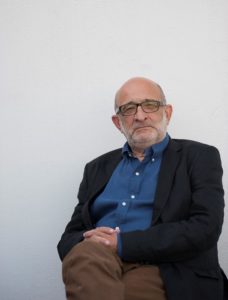
By Jerzy Sarnecki, Senior professor of criminology
Throughout my more than 45-year research career, I have strived for a simple (one might say positivistic) logic when it comes to the relationship between research and politics. We researchers provide politicians with facts. Based on this and other knowledge, politicians make the necessary decisions. In the vulgar attacks on me and other criminologists, it has often been claimed that we have a political agenda (we are usually accused of sympathizing with the Social Democrats or even communists). These claims are ideologically motivated lies. It seems to be easy to attribute such motives to others when you, yourself are driven by political motives. My aim throughout my professional life has been to build on objective knowledge and nothing but knowledge. Of course, that kind of orientation towards knowledge also has a value base. For me (as for so many others) it has been the equal value of all human beings. This might sound like empty words to some, but to me, it is serious.
When I think about some of the reactions I get to my research, I realize that they can also spring from an outrage that what researchers sometimes say and write differs greatly from people’s perception of the world we live in. Let me start with the most controversial. Today, there is no scientific support for the thesis that immigration increases crime in Sweden. This holds true even though immigrants are overrepresented among people who are suspected and convicted for crimes. Together with a group of colleagues at the University of Gävle and Institute for Future Studies, I am working on a project on the connection between crime and immigration. Our research is far from complete, but it is not unlikely that our car conclusion will be that at the macro level, immigration does not increase crime levels in Sweden. We can already state that the large influx of refugees from 2015 does not seem to have left an imprint in the Swedish crime statistics. Such a conclusion would, in that case, align well with results from extensive research in the USA and other countries. Researchers in these countries are rather discussing if, and in this case to what extent, immigration reduces crime.
But what will it mean if our research group concludes that immigration does not increase crime at a time when a majority of the political establishment base central parts of their policies, ahead of the upcoming elections, on the claim that immigration has become a burden on Swedish society, precisely because of crime? Under such circumstances, the role of research as an institution that produces factual evidence for politicians becomes completely impossible. Instead, we become direct political opponents of large parts of the political establishment. How groups on the fringes of this political establishment will react to the message “immigration does not cause increased crime” is not difficult to imagine. We can expect nothing less than a massive attack not only on our message but primarily on ourselves. This is how populism works.
The discussion about the effects of migration on crime in Sweden includes, in an obvious way, a more general discussion about the development of crime in our society. It is precisely the thesis that crime increases in step with immigration that is presented as evidence of burdensome immigration. In this way, every claim that we in Sweden do not have a general and accelerated increase in crime (some crimes greatly increase, not least fatal shootings in criminal circles, and fraud. Others decrease, for example, non-lethal violence, theft, and aggravated robbery), causes a strong reaction against the one who claims this thesis. I have had these types of reactions several times. It has thus been claimed that I “screw reality”, lie to the Swedish people, that I am Baghdad Bobb and the like. Conducting a nuanced discussion on crime development is difficult not only because there are strong political interests in painting a picture of Sweden as a country in disrepair, but also due to the public’s lack of knowledge about the actual criminal situation in the country and that crime is inherently difficult to measure.
The third area where criminological research is questioned for purely political purposes is the question of the effects of various sanctions for crime. Here, too, many politicians have invested in longer prison sentences as a solution to the criminal problem. I do not want to claim that this has been done against better knowledge. Many of the strong supporters of this criminal policy solution, hopefully, believe what they say, although most of them must be aware that there is heavy scientific criticism of the overly widespread use of prison. Obviously, in these contexts, the factual arguments must give way to moral indignation, and the political gains, which one thinks one can reap by promising harsh interventions.
My conclusion is that I, and probably many of my colleagues, must re-evaluate the thesis that researchers provide politicians with facts and politicians make rational decisions based on, among other things, these facts. Perhaps this was possible once upon a time (some of my colleagues would probably argue that it was never possible), when the political conversation had a different character, but today, in the age of populism, scientific facts are directly political. Those who want power in our society are often not interested in objective research findings, but in presenting their construction of reality. I believe that the research community will unfortunately be forced to adapt to these (at least in part) new conditions.
